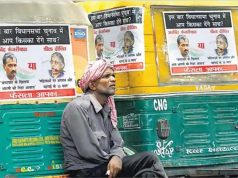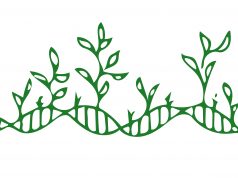The Draft Food Security Bill is up for a vote and there is an interesting debate raging about certain provisions, particularly those related to cash transfers. Should the government directly provide food to the poor through the public distribution system? Or should they provide cash which the poor can then use to buy food themselves in the market?
The current system operates in the first way, with people given a particular ration allocation. The government buys food from farmers and redistributes it to poor, hungry people. The Draft Food Security Bill would change that, shifting toward cash transfers, which could be used by the poor to buy whatever mix of food they want at local markets. Is this a good change? What are the implications?
The public distribution system is a mess. It is multi-layered and bureaucratic, going from the farmer through multiple intermediaries before finally making its way to individuals and households. There is corruption. Sometimes food doesn’t get to the right people, mysteriously disappearing along the way. Sometimes it spoils en route; after all, it’s been paid for already, so who has a very strong incentive to get it to people before it goes bad? I have no idea whether the food that people get is the food they really want. They certainly have little choice in the matter. Overall, the system sort-of works, but poorly, and leaves much to be desired.
So would cash transfers help? Yes, they would. Of course, like any system, they’re not perfect, but they have some real advantages over the current system and should therefore be encouraged.
- Cash transfers are less bureaucratic. In a cash transfer system, rather than moving food from the farmer, through multiple layers of government, to distribution houses, and then finally to people, farmers sell through the same channels that they are already using to get their goods to market. Cash transfers (or coupons) go directly to people in need of assistance and they can then use them to buy food in the market, just like everyone else. It’s simpler for farmers and for the government.
- Cash doesn’t spoil. Food distribution systems, like the PDS, require lots of infrastructure. Food has to be collected, transported, stored, and distributed. In the case of the PDS, the government has to find a way to do all that. Systems of transport and storage, particularly for items that need to be kept cool, are complicated and expensive. When the systems don’t work, food goes bad before it ever gets to poor people. In this way, there is tremendous waste. But move to cash, and the government no longer has to worry about any of that. The government deals only in cash, which doesn’t spoil, and farmers and food distributors are left to take care of preventing spoilage. They have lots of incentive to do that, because customers won’t buy rotten food, so they’re likely to be much more efficient in developing and operating those systems. That’s why all of us who buy milk every day know it will get to us without going bad. And since the government doesn’t have to worry about trucks and trains and refrigerators, a cash transfer system is cheaper for the government to operate, too.
- Cash empowers the recipients. Rather than giving the government control over how much and what kind of food people receive, cash allows them to make choices for themselves. You want rice instead of flour? OK. You’d rather have eggplant than cauliflower? Fine. You prefer curd to milk? No problem. Cash allows people to make choices. They can shop around to find better prices, just like you and I do. They can buy the food they want. They can take advantage of a great price on apples. Cash gives people more control over their own lives, down to the details of what food they eat.
The Draft Food Security Bill isn’t perfect, but cash transfers are a significant step forward – for recipients, for farmers, and for taxpayers. For this reason alone, it is worth hoping that the bill is a success.
Post Disclaimer
The opinions expressed in this essay are those of the authors. They do not purport to reflect the opinions or views of CCS.





